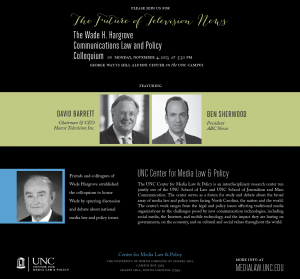 When a White House insider takes to Twitter, he loses his job – but not his First Amendment rights.
When a White House insider takes to Twitter, he loses his job – but not his First Amendment rights.
For two years, Jofi Joseph, the director of nuclear nonproliferation issues on the White House National Security Council staff, tweeted snarky remarks about politicians, reporters and colleagues using the anonymous Twitter handle @NatSecWonk. Last Tuesday evening, The Daily Beast reported that the White House, having learned of Joseph’s activities, relieved him of his duties.
Within an hour of the article’s publication, Twitter users flocked online to question the White House’s response. Many were critical, questioning whether Joseph’s firing was a violation of his First Amendment rights.
Wonder if there's a First Amendment violation here? // White House official fired for tweets http://t.co/TDpcLeCzYX via @POLITICO
— Annamarya Scaccia (@annamarya_s) October 23, 2013
http://t.co/qwkU93d18h First amendment doesnt apply in the WH? Unless your Potus.
— WatchmanontheTower (@stevenphook37) October 23, 2013
White House Official Censored and Fired for Airing Opinions Negative to the Administration: NoisyRoom…. http://t.co/2CqYZaMfbb
— FloridaJayhawk (@HouseCracka) October 23, 2013
As a former government employee and mass communication graduate, my immediate reaction was that the accusations in these tweets were unfounded and incorrect. A knowledgeable government employee knows that he or she can’t speak negatively and publicly about his or her employer without repercussions. But taking a step back, it’s clear that the ramifications of punishing government employee speech are significant and that firing a government employee is not a simple solution to the problems an outspoken employee creates. What about whistleblowers? What about the importance of political speech? Did Joseph give up his right to voice his opinions on important public topics when he joined the Obama Administration? And how does Joseph’s situation compare to the existing landscape of government employee speech cases?
Modern government employee speech law in the United States traces its roots to Pickering v. Board of Education of Township High School District 205, Will County, Illinois (1968). At issue in Pickering was the firing of an Illinois school teacher whose comments criticizing the Township Board of Education were published in a letter to the editor of a local newspaper. Marvin L. Pickering criticized the board’s management of bond funds and accused the board of silencing teachers’ opinions about a bond proposal. In a board of education hearing, the board found that many of Pickering’s accusations were false and damaged board members’ reputations. Pickering was fired. He appealed the board’s decision to the Circuit Court of Will County, Illinois, which supported the school district. This case was appealed to the U.S. Supreme Court, where the Court held that while public employees do have rights as citizens to speak about issues of public concern, this right must be balanced against the interest of the State, as an employer, in efficiently providing public services. Further, regarding the falseness of his claims, the Court held that Pickering’s comments would have to have been knowingly or recklessly false in order for him to be punished, under the then-recently decided New York Times v. Sullivan (1964) case, which established the actual malice standard for public officials in defamation cases. For these reasons, the Court ruled in Pickering’s favor and overturned the lower court’s ruling.
In two subsequent cases, Connick v. Myers (1983) and San Diego v. Roe (2004), the Court clarified that a public employee’s speech about private issues was less protected than speech about public issues. As such, the Court held that the balancing outlined in Pickering need only be applied after establishing that the speech in question was about issues of public concern. Most recently, in Garcetti v. Caballos (2006), the Court held that statements made as part of an employee’s official duties, such as in memos, meetings, or public briefings, do not receive First Amendment protection against disciplinary action. Rather, the Court held that the First Amendment protects only speech that the employee makes as a private citizen.
In applying these decisions to Joseph’s situation, it is first necessary to see if his tweets were about matters of public concern, as established under the Court’s decisions in Connick and San Diego. If so, the Pickering balancing test, in which the government interest in restricting or punishing speech is weighed against the employee’s right to speak, is applied.
Though Joseph’s Twitter account is no longer active, copies of his tweets are still available online. The tweets largely fall into two categories.
1) Comments or criticisms about public officials or policy
@NatSecWonk 14 Sep Peeps, we need more backstory on who was with Kerry during these three long days of negotiations. “Arms control experts” doesn’t cut it.
@NatSecWonk 15 Sep @ EricDKoch Look, Issa is an ass, but he’s on to something here with the @ HillaryClinton whitewash of accountability for Benghazi.
2) Snarky remarks about journalists, White House staffers and policy makers
@NatSecWonk 18 Jul 12 Was Huma Abedin wearing beer goggles the night she met Anthony Wiener? Almost as bad a pairing as Samantha Powers and Cass Sunstein ….
@NatSecWonk 25 Jan 12 If Gingrich wins the nomination, all those GOP foreign policy weenies who jumped on Romney’s bandwagon, er policy teams, will be so screwed!
In the first examples above, Joseph implies that the Obama administration should release more information about John Kerry’s negotiations around the elimination of Syria’s chemical weapons program. Joseph also states that Hillary Clinton deserves some blame for the State Department’s handling of the 2012 crisis in Benghazi, in which U.S. ambassador Christopher Stevens was killed. These issues are issues of public concern and subject to the balancing outlined in Pickering. However, the tweets in the latter group do not appear to relate directly to issues of public concern and, in the case of public employees, can result in disciplinary action.
Writing for the majority in Pickering, Justice Marshall stated that the speech of teachers, informed by their expertise in the field, allows them to contribute a unique and important perspective to debate over public school funding. Did Joseph’s knowledge of national security issues provide him a similarly unique perspective? Tweets from the @NatSecWonk account don’t suggest that. For example, his statement about Benghazi echoes what many politicians and members of the media already were saying. Did Joseph knowingly or recklessly make false statements? It’s not clear that he made false statements at all. It is immediately clear that his statements were rude and in bad taste, but they are, for the most part, statements of opinion and not provable as fact. Notably, it also has been reported that Joseph did not use the account to disseminate classified information.
It is also important to note that Garcetti is not relevant here. No one would argue that Joseph’s tweets as @NatSecWonk were made as part of his job duties.
Other commentators have suggested that the content of Joseph’s speech doesn’t matter because he was an “at-will employee” and can be fired for any reason. Thankfully, this issue is not complicated. Yes, many government employees, including most in state governments such as North Carolina, are “at-will,” meaning they are not protected by the termination processes or requirements for a showing of just cause that often are included in collective bargaining agreements. At-will employees can be dismissed at any time for legal reasons, but still cannot be dismissed for illegal reasons, such as exercising their right to free speech. The UNC School of Government offers an explanation of “At-Will Employment” including a list of federal protections for government employees. These protections make it illegal to dismiss at-will employees based on factors such as race, religion and the results of unreasonable searches.
Because Joseph’s status as an at-will employee does not diminish his constitutional protections, we can return to the content of his speech. Do the issues raised by Joseph outweigh the needs of the White House to do its business? I would argue that they do not. After reading many of the @NatSecWonk tweets, it is clear that Joseph has palpable disrespect for his coworkers, which would likely impede any working relationship. His comments on issues of public concern did not add much to the existing conversations on issues of interest to the White House. There might be an occasional tweet about his opinion on the administration’s handling of the Benghazi crisis that would outweigh the needs of the White House, but these are few and far between.
So where does that leave us? And what does that mean for Joseph and the future of government employee speech? In my analysis, most of Joseph’s tweets contain content for which he can clearly be punished. There are a few things that are protected by the First Amendment. Does that small amount of speech outweigh the mass of insubordinate content? Probably not, but as David Ardia, co-director of the UNC Center for Media Law and Policy, recently observed, “public employee speech doctrine is very murky.”
John Remensperger is a digital strategist at the UNC Center for Media Law and Policy. Before moving to North Carolina from California, John spent five years managing municipal arts and recreation programs. John’s research interests include the use of new media in government and political communication, and in the promotion of civic participation.



